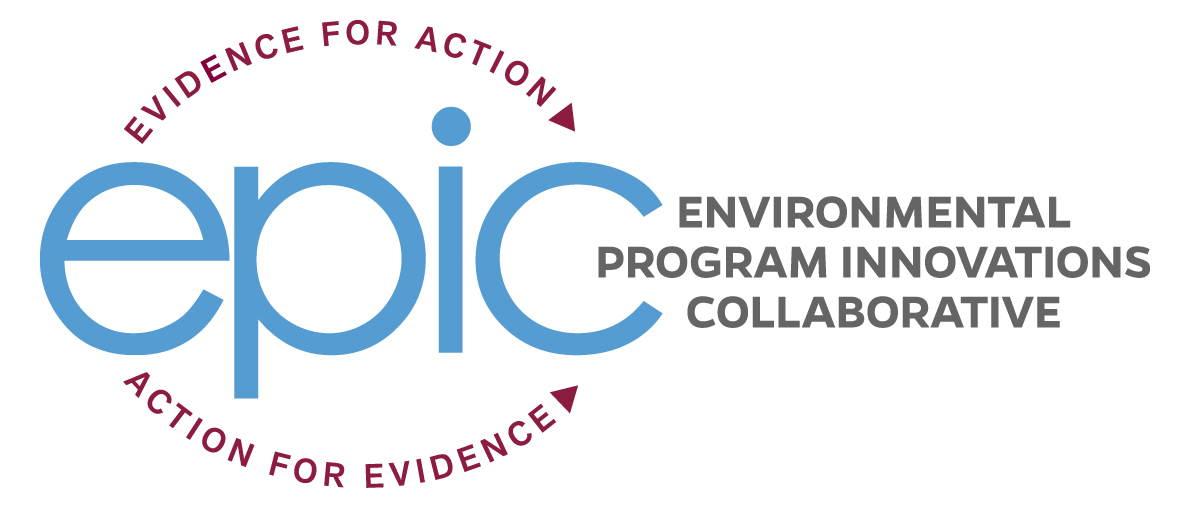MISSION
The Environmental Program Innovations Collaborative (EPIC) works with environmental program managers and their partners to develop evidence-based programs that change human behaviors in ways that benefit the environment and society.
GOALS
Create evidence-based program designs that achieve greater levels of efficiency, broad satisfaction with the programs, and improved environmental outcomes.
How is EPIC different from other academic environmental research centers?
Environmental Program Innovations
Environmental problems are human behavior problems. Effective environmental solutions should therefore be designed with a deep understanding of human behaviors and solid empirical evidence about how humans respond to the proposed solutions.
Collaborative
EPIC is a collaborative network of academics and program managers who test program innovations within actual environmental programs. EPIC research is not separated from day-to-day program operations. Instead, EPIC embeds rigorous testing of innovative ideas directly into program operations.
Evidence for action. Action for evidence.
EPIC believes we can improve today’s environmental conditions while simultaneously building a solid evidence base for tomorrow’s environmental programs. By embedding rigorous testing into programs, EPIC transforms today’s actions directly into trusted evidence that informs tomorrow’s decisions.
Why experimental evaluation designs?
We believe a “test, learn, adapt” strategy will lead to better environmental outcomes at lower costs to environmental agencies, citizens and businesses. Embedding inexpensive experimental designs into programs is the easiest and most credible way to determine how best to improve environmental programs.
Why behavioral science?
Everyone agrees that environmental programs should be grounded in sound science, but most attention goes towards developing and applying insights from the natural, physical, and health sciences. However, insights from the behavioral sciences, like economics, psychology, sociology, and neuroscience, are just as important. Understanding how humans make decisions is a key component in the design of successful environmental programs.
